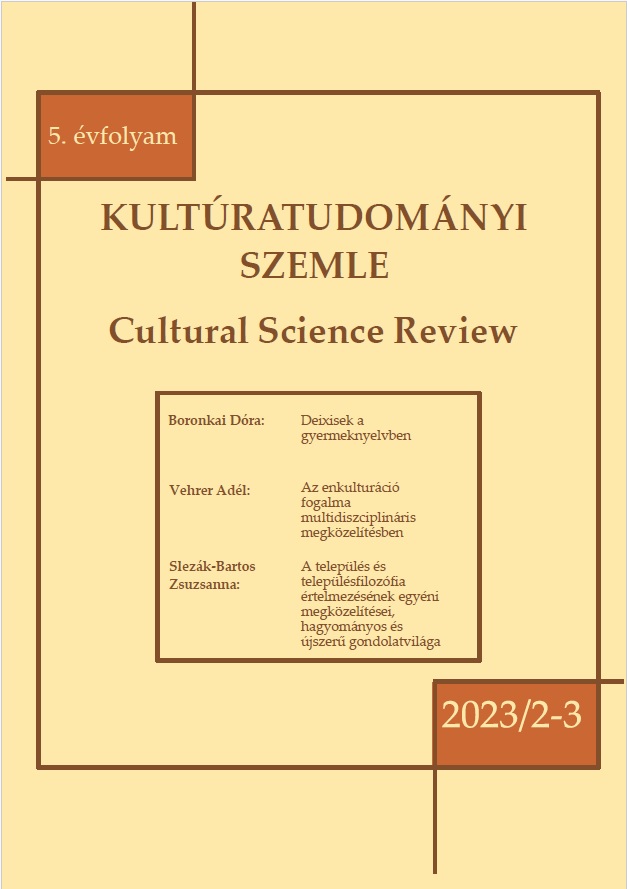Az éghajlatvédelem poétikája és etikája felé. Ragadozók, bányászat, Szent Ágoston
DOI :
https://doi.org/10.15170/KSZ.2023.05.02.05Résumé
Towards a Poetics and Ethics of Climate Protection
The study addresses the urgent need for a comprehensive approach to climate change, emphasising the role of individual responsibility and political action. It advocates for a shift in thinking, where each person acknowledges their responsibility for climate change, which is crucial for developing effective strategies to combat it. The author agrees with the consensus among climate scientists and scientific circles that human activity is the primary cause of global warming. However, argues that a democratic society lacks a single authoritative figure to dictate actions, placing the onus on individuals to act responsibly and ethically. Exploring the ethical dimensions, the text delves into the philosophical and ethical implications of our relationship with the Earth, drawing on Saint Augustine's reflections on time and the nature of the past. It discusses the concept of exploiting the Earth's resources, likening it to enslaving the past, and emphasises the need to treat these resources as partners in our survival rather than mere commodities. The author argues for a sustainable and ethical approach to resource management, advocating for a balance between taking from and giving back to the Earth. The text concludes by discussing the role of technology, ethics, and legislation in reversing climate change. It highlights the need for more excellent knowledge, responsibility, and collective action to understand and mitigate the adverse effects of climate change. János Boros calls for extending Kant's categorical imperative to include the Earth, emphasising the moral obligation to protect and sustain the planet for future generations. Overall, the study is a comprehensive and philosophical exploration of climate change's ethical and practical challenges, advocating for individual responsibility, strong legislative action, and reevaluating our relationship with the Earth.

